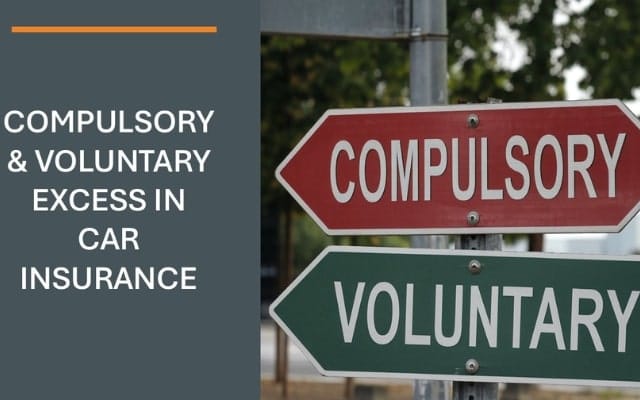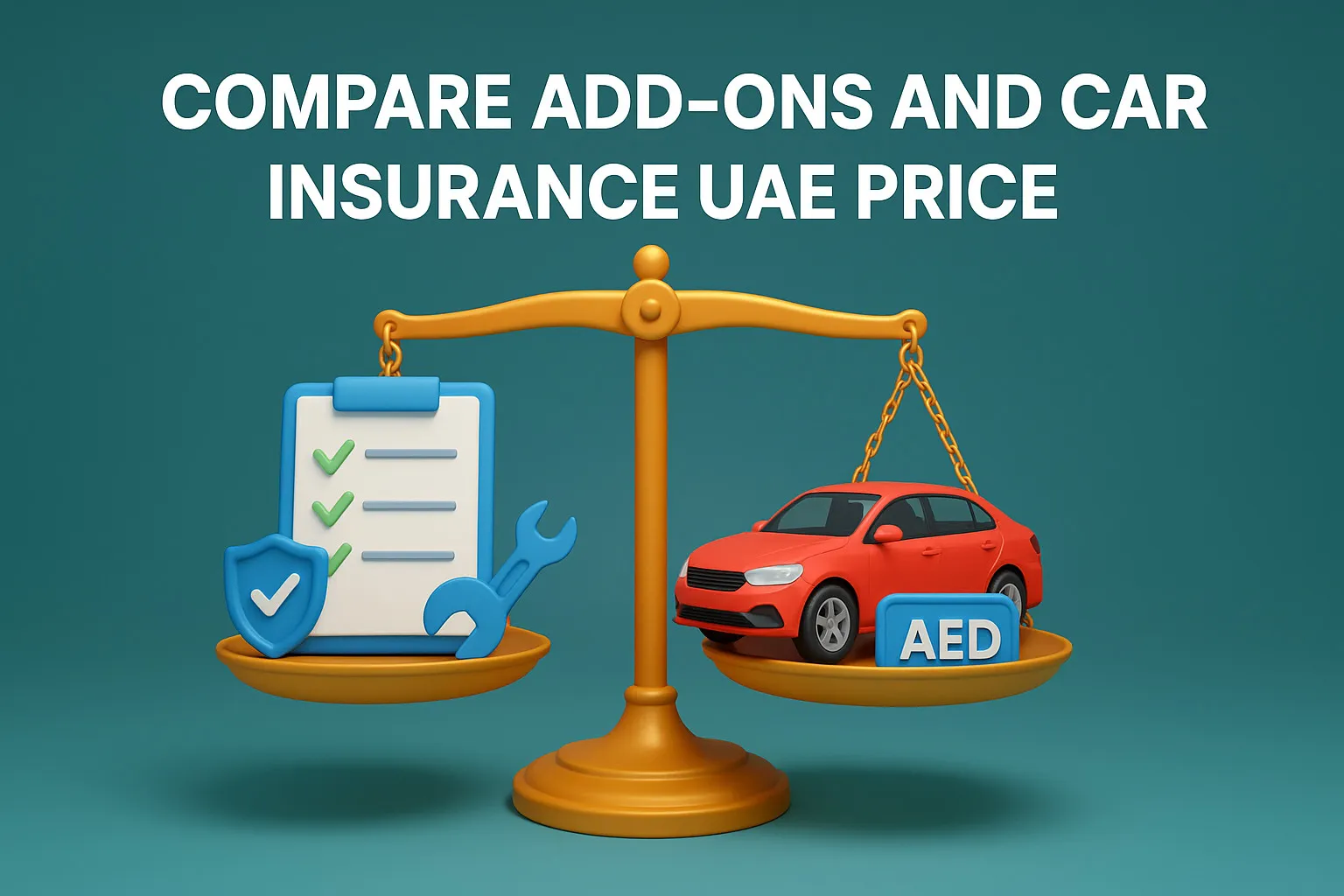Car insurance can feel like a maze of terms and conditions, especially when it comes to excess—a term that many drivers don’t fully understand until they need to make a claim. If you’ve ever wondered why you might need to pay extra when filing a claim or how to reduce your monthly premiums, it’s all tied to this concept.
For drivers in the UAE, knowing the difference between compulsory and voluntary excess in car insurance can help you make cleverer decisions and avoid unexpected costs.
Let’s break down how these two types of excess work and how they affect your car insurance.
What is excess in car insurance?
In simple terms, excess in car insurance refers to the amount you pay out of your pocket when making a claim. Once you pay the excess or deductible, the insurance provider takes responsibility for the remaining claim amount, within your policy coverage limits. This excess is divided into two types: compulsory and voluntary.
- Compulsory excess: Set by the insurance company and cannot be changed.
- Voluntary excess: An additional amount you choose to pay during a claim.
Now, let’s examine closely how these two types of excess in car insurance work and how they can impact your policy.
Understanding compulsory excess in car insurance
Compulsory excess (also called mandatory excess) is a fixed, non-negotiable amount set by your car insurance company in the UAE that you must pay when making a claim. The main factor determining the amount of compulsory excess is the engine capacity of your vehicle. This means that different cars will have varying mandatory excess amounts depending on the size of their engines.
Since the insurance company decides the compulsory deductible amount, you have no control over it, but knowing it can help you prepare for financial responsibility in case you need to file a claim.
Voluntary excess: Your choice, your savings
With voluntary excess, you can choose to add an additional amount on top of the compulsory excess. The benefit of opting for a higher voluntary excess is that it typically lowers your premium. However, the trade-off is that you’ll have more to pay out of pocket if you do make a claim.
For example, if your compulsory excess is AED 500 and you opt for an additional voluntary excess of AED 300, you’ll need to pay AED 800 before the insurance company steps in.
Voluntary deductible is a good option if you are a safe driver, confident that you won’t need to claim often, and are looking for ways to reduce your insurance costs.
Compulsory vs. Voluntary excess: Key differences
Here’s a quick comparison of the two types of excess in car insurance to help you understand how each works:
| Aspect | Compulsory excess | Voluntary excess |
| Definition | A fixed amount set by the insurer paid during a claim. | An amount that the policyholder can choose to reduce premiums. |
| Control | Set by the insurer, with no control by the policyholder. | Full control by the policyholder. |
| Impact on premium | No direct effect on the premium. | Higher voluntary excess = lower premium. |
| Financial risk | Fixed amount, predictable out-of-pocket cost. | Increases the policyholder’s financial responsibility during claims. |
| Suitability | Required for all policyholders. | Best for experienced drivers looking to reduce premiums. |
Pros and cons of voluntary excess
When deciding on voluntary excess in car insurance, weighing the advantages against the possible risks is necessary. Here are some pros and cons of getting a voluntary excess:
Pros of voluntary excess in car insurance
- Lower premiums: Adding a higher voluntary excess can significantly reduce your insurance premium.
- Customisable: You can adjust the amount of voluntary excess based on your financial situation and driving confidence.
- Great for low-risk drivers: Drivers who are confident in their ability and unlikely to make claims can save money in the long run.
Cons of voluntary excess in car insurance
- Higher out-of-pocket costs: If you have a claim, you’ll need to pay more out of pocket before the insurer covers the rest.
- Increased financial risk: Opting for a high voluntary excess increases the financial burden in the event of an accident.
- Fewer small claims: A high excess might discourage you from claiming minor damages, as the repair costs could be close to or less than your total excess.
Understanding these pros and cons helps ensure your decision aligns with your financial capabilities and driving habits.
Who should opt for voluntary excess?
Choosing a voluntary excess can be smart, but it isn’t for everyone. Here’s who should consider opting for it:
- Experienced drivers: A higher voluntary excess can save you money on your premium if you have a clean driving record and rarely make claims.
- Confident drivers: If you’re confident in your driving skills and don’t foresee needing to file a claim often, a higher voluntary excess reduces your insurance costs.
- Budget-conscious individuals: If you prefer to pay a lower premium now and have enough savings to cover a larger out-of-pocket cost in case of an accident, voluntary excess can be an ideal choice.
Final takeaway
Understanding the difference between compulsory and voluntary excess can help UAE drivers make informed decisions when choosing a car insurance policy. While compulsory excess is unavoidable and tied to engine capacity, voluntary excess allows flexibility to reduce premiums. It’s important to find a balance that aligns with both your budget and driving habits.
InsuranceMarket.ae can assist by offering tailored advice helping drivers select the right mix of excess options to get the best value while ensuring they are well-prepared for any unexpected incidents.
Frequently Asked Questions (FAQs)
What is the excess on a private car policy?
Excess refers to the amount you must pay when claiming your car insurance. It usually includes both compulsory and voluntary excess, if applicable.
Is it better to have high or low excess?
A high excess means lower premiums but higher out-of-pocket costs if you claim. It’s suitable for confident drivers who don’t expect to claim often. While increasing your premium, a low excess reduces your cost during a claim.
Is insurance excess refundable?
No, once you pay the excess, it’s not refundable. It’s your contribution toward the claim, and the insurance company covers the rest.
Do I need to pay excess if the accident wasn’t my fault?
This depends on your policy. Some policies waive the excess if the accident wasn’t your fault, but you must confirm this with your insurer.
What is the purpose of excess in insurance?
The excess ensures drivers share some of the financial responsibility, which discourages small claims and helps keep premiums affordable.
Can I change my voluntary excess later?
Many insurance companies allow you to adjust your voluntary excess during your policy term, but it’s important to check with your insurer for their specific rules.






